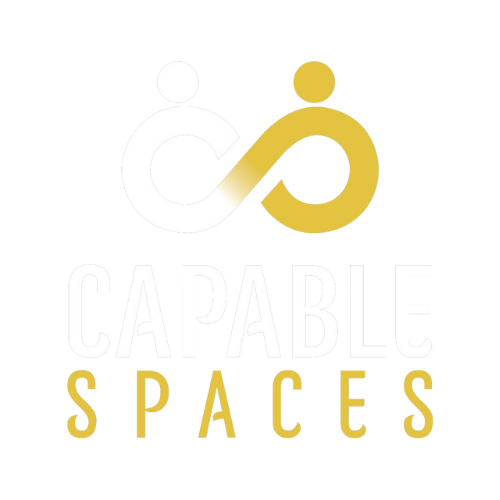Caring for elderly parents can be challenging, especially when it comes to their health and comfort. One important safety risk to consider is pressure injuries, also known as bedsores or pressure ulcers. These injuries happen when there is too much pressure on the skin, usually in areas where bones are close to the skin, like the heels, hips, and back. However, with some simple steps, you can help prevent these injuries and keep your parents comfortable.
1. Understand Risk Factors
It’s essential to know who is at risk for pressure injuries. People who are often in one position for a long time, such as those who are bedridden or sit for extended periods in a chair, are more likely to develop these injuries. Other risk factors include spending time in a wheelchair, poor nutrition, excessive moisture from sweat or incontinence, and medical conditions that affect blood flow.
2. Change Positions Regularly
One of the best ways to prevent pressure injuries is to change position frequently. If your loved one is in bed, try to move them at least every couple of hours. If they are sitting in a chair, encourage them to change their position every hour. This change helps relieve pressure on specific areas of the skin.
3. Use Supportive Cushions
Using supportive cushions and mattresses can make a big difference. Look for special pressure-relieving cushions for their chair and an overlay mattress for their bed. These products are designed to reduce pressure on the skin and provide added comfort.
4. Keep the Skin Clean and Dry
Keeping skin clean and dry is crucial for preventing pressure injuries. Make sure to bathe regularly, using gentle soap, and dry skin thoroughly. Pay special attention to areas prone to moisture, such as underarms, groin, and between the toes. You may also want to apply a barrier cream to protect skin from moisture.
5. Encourage Movement
Encourage your parents to be as mobile as possible. If they can walk, help them do so regularly. Gentle exercises can improve circulation and reduce the risk of pressure injuries. Even small movements, like wiggling their toes or moving their arms, can be beneficial if they cannot get up.
6. Monitor Nutrition and Hydration
Good nutrition and hydration play a vital role in skin health. Make sure your parents eat a balanced diet rich in fruits, vegetables, whole grains, and protein. Staying hydrated is equally important, so encourage them to drink plenty of water throughout the day.
7. Check the Skin Regularly
Make it a habit to check your parents’ skin daily for any signs of redness, swelling, or changes in colour. Early detection of skin issues is key to preventing pressure injuries. If you notice any concerns, consult their healthcare provider for advice.
8. Seek Professional Help
If your parents are at high risk for pressure injuries, consider seeking professional help. A nurse or occupational therapist can offer guidance on proper care and suggest additional preventative measures tailored to their needs.
1. Understand Risk Factors
It’s essential to know who is at risk for pressure injuries. People who are often in one position for a long time, such as those who are bedridden or sit for extended periods in a chair, are more likely to develop these injuries. Other risk factors include spending time in a wheelchair, poor nutrition, excessive moisture from sweat or incontinence, and medical conditions that affect blood flow.
2. Change Positions Regularly
One of the best ways to prevent pressure injuries is to change position frequently. If your loved one is in bed, try to move them at least every couple of hours. If they are sitting in a chair, encourage them to change their position every hour. This change helps relieve pressure on specific areas of the skin.
3. Use Supportive Cushions
Using supportive cushions and mattresses can make a big difference. Look for special pressure-relieving cushions for their chair and an overlay mattress for their bed. These products are designed to reduce pressure on the skin and provide added comfort.
4. Keep the Skin Clean and Dry
Keeping skin clean and dry is crucial for preventing pressure injuries. Make sure to bathe regularly, using gentle soap, and dry skin thoroughly. Pay special attention to areas prone to moisture, such as underarms, groin, and between the toes. You may also want to apply a barrier cream to protect skin from moisture.
5. Encourage Movement
Encourage your parents to be as mobile as possible. If they can walk, help them do so regularly. Gentle exercises can improve circulation and reduce the risk of pressure injuries. Even small movements, like wiggling their toes or moving their arms, can be beneficial if they cannot get up.
6. Monitor Nutrition and Hydration
Good nutrition and hydration play a vital role in skin health. Make sure your parents eat a balanced diet rich in fruits, vegetables, whole grains, and protein. Staying hydrated is equally important, so encourage them to drink plenty of water throughout the day.
7. Check the Skin Regularly
Make it a habit to check your parents’ skin daily for any signs of redness, swelling, or changes in colour. Early detection of skin issues is key to preventing pressure injuries. If you notice any concerns, consult their healthcare provider for advice.
8. Seek Professional Help
If your parents are at high risk for pressure injuries, consider seeking professional help. A nurse or occupational therapist can offer guidance on proper care and suggest additional preventative measures tailored to their needs.


